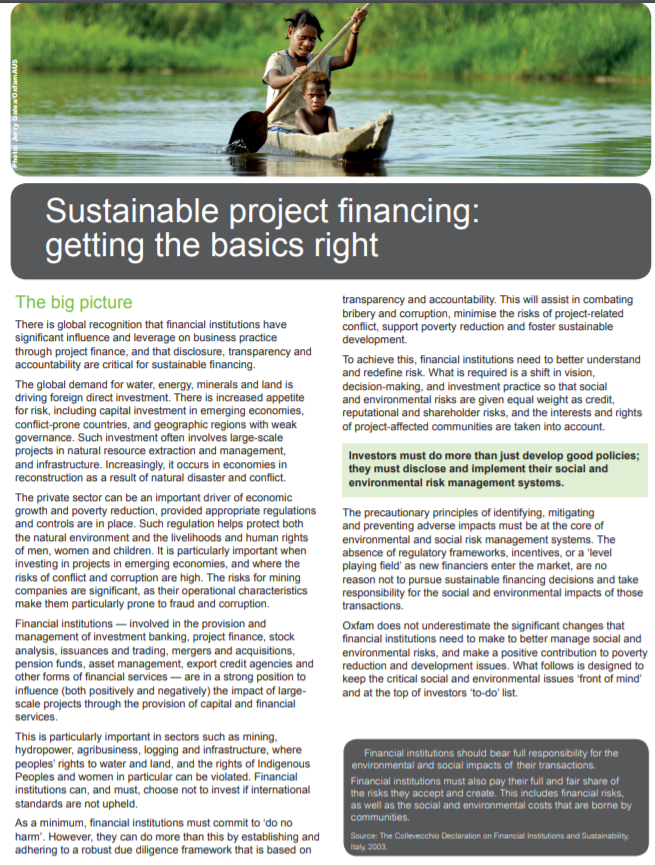Location
Our vision, values & goals
We believe that poverty is unjustifiable and preventable, that the present state of inequality and injustice must be challenged, and that with the right help, poor people can change their lives for the better.
Our vision
Oxfam’s vision is a just world without poverty. We envisage a world in which people can influence decisions that affect their lives, enjoy their rights, and assume their responsibilities—a world in which everyone is valued and treated equally.
Our purpose
Oxfam strives to help create lasting solutions to the injustice of poverty. We are part of a global movement for change, one that empowers people to create a future that is secure, just, and free from poverty.
Read our Purpose and Beliefs in full.
Our goals
We have one main goal: to bring about positive change in the lives of people living in poverty.
To achieve this goal, we have established our central commitments and twelve goals that are outlined in our2014 —2019 Strategic Plan.
To achieve our commitment to reconciliation between Aboriginal and Torres Strait Islander peoples and other Australians, we’ve developed a detailed Reconciliation Action Plan in consultation with Reconciliation Australia and our Aboriginal and Torres Strait Islander Peoples’ Program staff.
Members:
Resources
Displaying 6 - 10 of 11Balancing the Scales: Using Gender Impact Assessment in Hydropower Development
Balancing the Scales in a manual designed to help planners and decision makers identify, understand, predict and respond to gender differences, opportunities and needs. The guide includes questions for staff involved in developing and managing projects and plans. The manual also helps companies consider their corporate practices beyond the project level, especially their operational policies and their project management frameworks through a lens of advancing gender equality and women’s rights.
Sustainable project financing: getting the basics right
This short briefing provides information for investors and lenders on the importance to develop a due diligence ‘risk framework’ to identify, mitigate and prevent the adverse impacts of their investment decisions. It provides links to additional resources on the topic.
SLEEK - Emissions Estimation System in Kenya
General
This investment is the System for Land-based Emisssions Estimation in Kenya (SLEEK). Funding under this initiative assists the Government of Kenya by building a national carbon accounting system (NCAS) that will compile information from Kenya's forestry and agricultural sectors. The system will have capacity for measurement, reporting and verification of greenhouse gases. It will support Reducing Emissions from Deforestation and Forest Degradation in developing countries (REDD+) readiness activities and reporting requirements. This will assist Kenya to receive benefits for reducing emissions from their forest sector, and can also support the Government of Kenya's broader capacity for land-use planning and policy decision making, which can benefit food and water security and efforts to build climate resilience. The total value of this initiative is $13.0 million over 5 years, starting 2011-12.
Au-delà des Frontières ADEPAE Phase II
General
Contribuer à la mise en #uvre de la feuille de route vers la paix par l#amélioration des relations entre les communautés locales etla gouvernance foncière dans les entités administratives des provinces du Nord et Sud Kivu. - #Faciliter la mise en #uvre des actions pour la feuille de route régional vers la paix à Masisi,Goma, Uvira et Fizi#. - Faciliter les liens entre les différents niveaux de la représentation communautaire au sein de #le Feuille de Route vers la Paix# - Renforcer les capacitésdes femmes et des jeunes en vue d#un plaidoyer pour la paix plus significatif dans les espaces et politiques locales et provinciales
Programme d’Appui à la Sécurité Alimentaire et la Résilience des Populations aux Crises Climatiques et Sociale
General
Das FZ-Vorhaben PROMOGEF hat durch die Bereitstellung von dezentraler Infrastruktur und deren Ausstattung, die Digitalisierung der Landrechtsverwaltung und deren Modernisierung die Verbesserung des Zugangs zu Landnutzungsrechten und Landtiteln als Ziel und unterstützt damit die Umsetzung der senegalesischen Reformagenda (Plan Senegal Emergent II). Œ ŒKernproblem: ŒZuständigkeiten im Bereich Landrecht sind unklar, staatliche Stellen und Gemeinden sind nicht ausreichend für die Aufgabe ausgerüstet und die aktuelle Rechtslage trägt den Bedürfnissen der Gemeinden noch nicht ausreichend Rechnung (z.B. hinsichtlich der Ausweisung als Weideflächen, Gemeindeland oder Gruppenbesitz). Außerdem besteht Misstrauen zwischen Kommunen und staatlichen Behörden, da die Kommunen fürchten, ihr Recht der Landverwaltung durch eine Formalisierung abgesprochen zu bekommen. Œ ŒModulziel: ŒDie Landrechtsverwaltung durch die zuständigen Behörden (Verwaltungsbehörden, lokale Behörden und technische Dienste) ist effizient, transparent und verantwortungsvoll. Œ ŒWesentliche Outputs: Œ Die Infrastruktur und die Ausrüstung für die Verwaltung der Landrechte ist modernisiert. Œ Das digitalisierte System der Landrechtsveraltung (SGF), das ein digitales Grundbuch und ein geographisches Informationssystem umfasst, ist eingerichtet. Œ Die für die Projektdurchführung erforderlichen Management- und Governance-Fähigkeiten der DGID sind gestärkt (dies erfolgt durch die Entwicklung und Umsetzung eines Change-Management-Plans der Behörde, der u.a. die Einbeziehung der Zivilgesellschaft und die Berücksichtigung von Bedürfnissen vulnerabler Gruppen, darunter v.a. Frauen, in Verwaltungshandeln einbindet). Œ ŒZielgruppe: ŒDie Zielgruppe ist die Bevölkerung in den Interventionsregionen. Œ ŒBeitrag zur nationalen Umsetzung der Agenda 2030: ŒDas Modul leistet einen Beitrag zur Erreichung des Sustainable Development Goal (SDG) 1, SDG 8 und SDG 16 der Agenda 2030 für nachhaltige Entwicklung, welche durch den nationalen Entwicklungsplan Plan Sénégal Emergent (PSE) umgesetzt wird.
Objectives
Die Landrechtsverwaltung durch die zuständigen Behörden(Verwaltungsbehörden, lokale Behörden und technische ŒDienste) ist effizient, transparent und verantwortungsvoll. Œ




